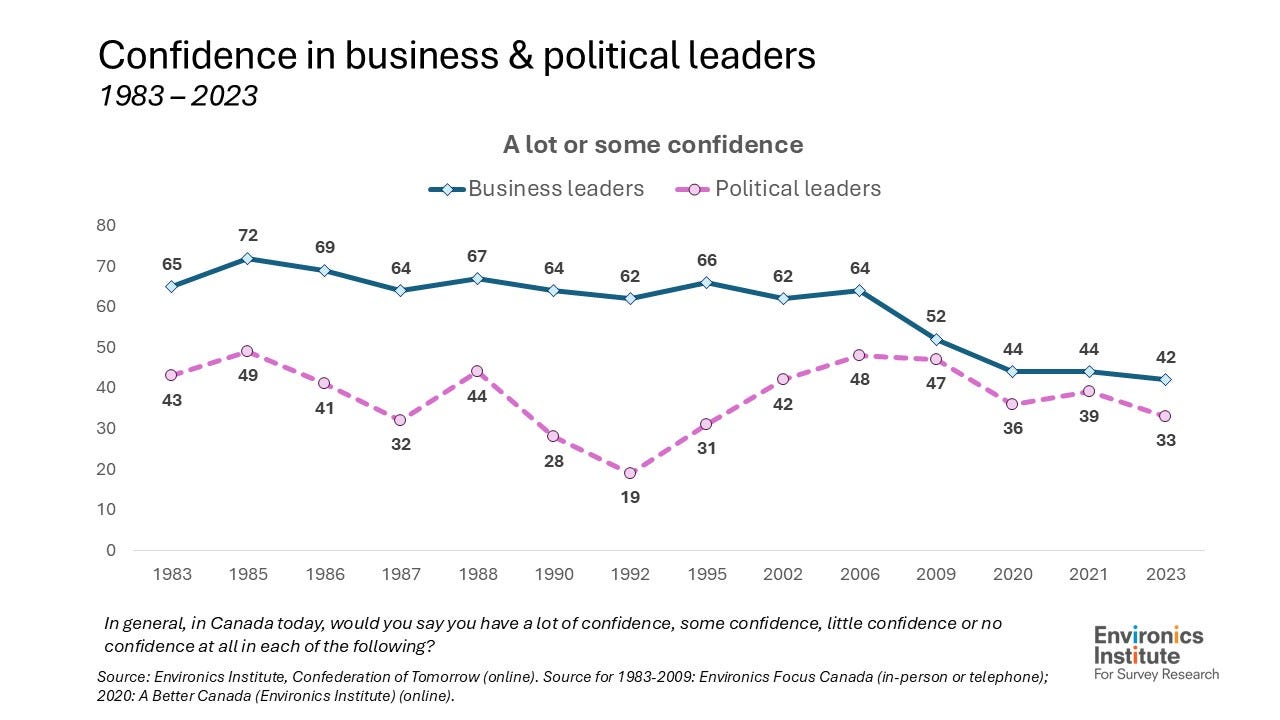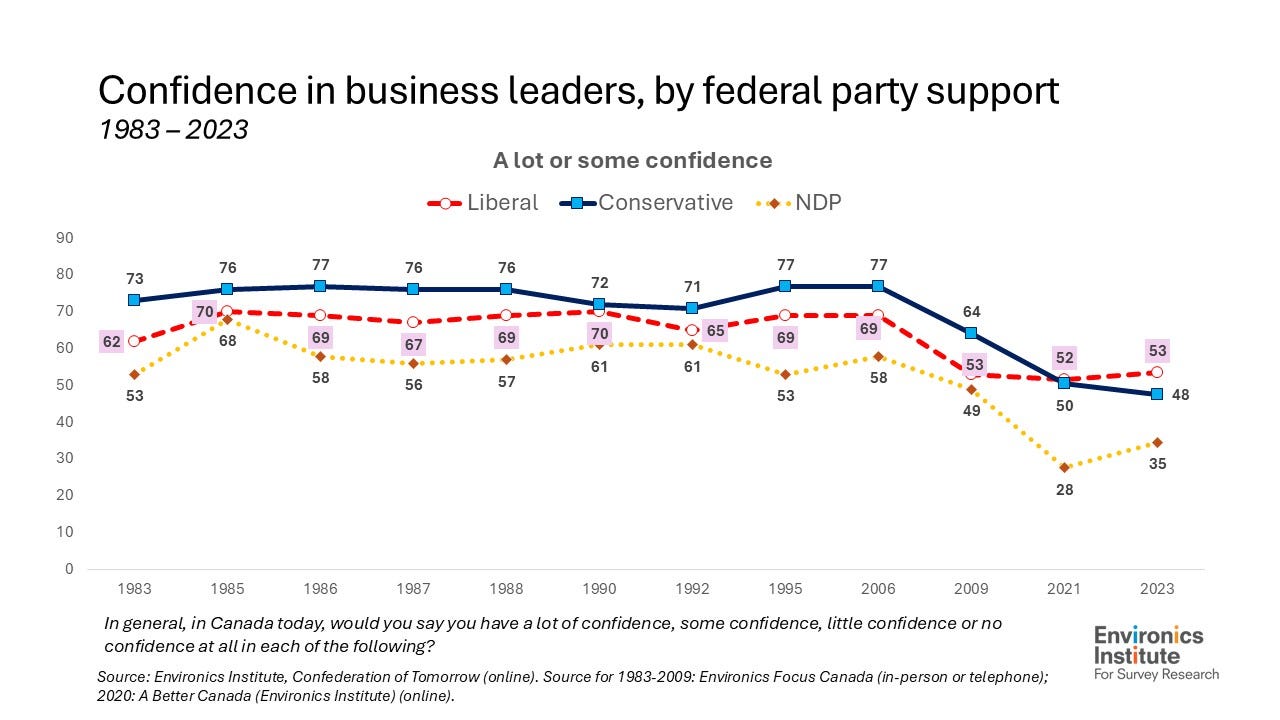Understanding today’s Conservatives
What we keep missing about the decline in confidence in institutions
Last fall, I gave a couple of presentations on trust in institutions, in which I pointed out that trust in governments is not steadily declining, decade after decade. Rather, it tends to move up and down, in parallel with political and economic cycles. It’s lower today than it was a few years ago, but higher today than it was 30 years ago.
I want to return to another of the observations I made in those presentations, because I think, while it’s important, it’s often overlooked. The observation is that, over the past 15 years or so, confidence in business leaders has declined more than confidence in governments or political leaders.1
You can see the trends here:
For over 20 years, starting in the early 1980s, confidence in business leaders hardly changed (despite the harsh recession of the early 1990s). Then, in 2009, following the global financial crisis, it declined significantly.2 What’s more, it didn’t rebound once the economic crisis passed. Rather, it declined further and has yet to recover.
Confidence in business leaders declined by 22 percentage points between 2006 and 2023, compared to a decline of 15 points for confidence in political leaders.
It’s worth pausing to note the different public reactions to the recessions of the early 1980s, early 1990s and late 2000s. The first two unfolded without affecting confidence in business leaders, but the last one – the financial crisis – did not. What’s more, it appears that the financial crisis didn’t just coincide with a short-term dip in confidence in business leaders, but a lasting reset. This strikes me as an important part of the backdrop to the direction that our politics has taken over the past decade.3
There is one other part of the story that seems to me to be especially interesting, and that’s how things break out for the supporters of the three main federal political parties.
Between 2006 and 2023, confidence in business leaders declined among supporters of the Liberal Party, the Conservative Party and the NDP. But it fell more sharply among Conservative supporters (a drop of 29 points) than Liberal supporters (down 16 points). Liberal Party supporters are now more likely than supporters of the Conservative Party to express confidence in business leaders – which never used to be the case.
Why is this important? I think it’s part of the answer to the question of how today’s Conservative Party differs from the old Progressive Conservative Party that it subsumed. Historically, the rule of thumb was that parties on the left were pro-labour and parties on the right were pro-business. I’m not sure that framework still holds. The PC party under Brian Mulroney arguably cared about what Bay Street thought much more than today’s Conservative Party under its current leader does.
This growing resentment of big business is also a key component of the populist current in today’s politics. The anti-elite rhetoric of populism targets not only politicians, but a broader assemblage of leaders who are perceived to be thwarting the will of the people. This can include politicians, journalists, intellectuals – and also corporate CEOs.
This dimension of populism is nothing new; populism as a North American political movement from the very beginning took aim at the people running the banks and the railroads. But if you were about to select a former central banker to lead the charge against the modern Conservative Party, the growing skepticism of the Conservative base toward business leaders might be worth noting.
The data in this post are from the Environics Institute’s Focus Canada, Confederation of Tomorrow and A Better Canada surveys; details of the methodology of all our surveys are available on the Projects section of our website. Thanks to our survey projects partners for making these studies possible.
What is the Environics Institute for Survey Research? Find out by clicking here.
Follow us on other platforms:
Bluesky: @parkinac.bsky.social
Twitter: @Environics_Inst or @parkinac
Instagram and Threads: environics.institute
Cover photo credit: Mario Cuadros
Attentive readers may notice that I switched from talking about trust to talking about confidence. Before spending too much time wondering what the difference is between the two terms, note that they both translate into French as “confiance.”
The 2009 survey was conducted between April 14 and May 5, 2009.
Admittedly, the link I’m implying between the drop in confidence and the financial crisis is speculative; it seems plausible to say it was the crisis and its aftermath that dented confidence in business, but the decline in confidence could have other causes, such as the rise of giant tech companies.







As always, interesting observations, particularly the correlation between declining confidence in business and increased populalism. Equally interesting if different case is Trump admin efforts to straddle the tech bros and their base.
Are there any additional data points which provide some indication as to why these changes have occurred? You speculate that it is because of the Great Recession. However, I can see some arguing that Conservatives lowered confidence could be a reaction to culture wars rhetoric about businesses taking on social causes. Or that a recent uptick in NDP confidence might reflect the party’s shift away from being largely union supported to being more progressive/elite focussed.